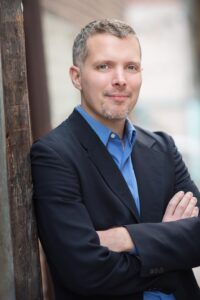The mission of Poverty Solutions is to partner with communities and policymakers to find new ways to prevent and alleviate poverty.

In confronting the challenges of poverty, we know scholars don’t have all the answers. Yet we have an important role to play. We can use data, evidence, and analysis to identify critical issues and evidence-based solutions to inform action.
As we’ve grown with our partners, we’ve come to view poverty as the result of interlinked systems —housing, education, criminal justice, labor markets — that fail to function as they should for people with low incomes, inhibiting their ability to live healthy and productive lives. We recognize that many of these systems failures are the result of long-term racial and socioeconomic inequalities. Such a systems approach can be overwhelming, but it also allows for many entry points to intervene, and that fuels our work.
Our partnerships demonstrate the power of uniting a top research institution with policymakers and practitioners; how together we can find new ways to prevent and alleviate poverty and empower families.
At Poverty Solutions, we seek to be responsive to community voices. Listening to those most affected by poverty and sharing information broadly is a practice we embed in our work. We approach our work entrepreneurially, seeking opportunities for positive change with strong partners, and setting the agenda collaboratively with those partners. We leverage the diversity of expertise and strengths of the University of Michigan to analyze data and conduct research to identify existing policy gaps. We listen, share findings, propose interventions, and evaluate and monitor—listening again as new models take shape. In the end, the goal is concrete change based on data, evidence, and analysis.
I’m proud of the track record of success that Poverty Solutions has built and the ways our work is positively impacting the lives of people in meaningful ways. I’m deeply appreciative of our many community partners, and I look forward to building on our collective work in the future. We’re just getting started.
In partnership,
![]()
H. Luke Shaefer
on sabbatical leave for the 2024-25 academic year
